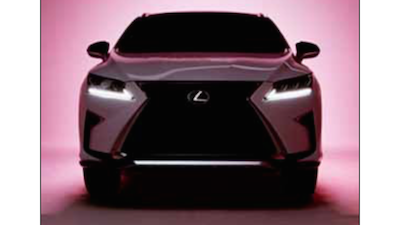Non-premium brand automobiles have higher-quality new vehicles than their premium counterparts, according to a J.D. Power study.
While premium brands averaged 108 problems per 100 vehicles within the first three months of ownership, non-premium brands averaged 104. Initial quality is correlated with repeat business, suggesting that luxury brands should get back to basics and improve quality control before proceeding to make sales.
“Certain types of problems may have more influence on a consumer’s satisfaction with their new vehicle,” said Renee Stephens, vice president of U.S. Auto Quality at J.D. Power.
“For example, for consumers that are very price sensitive (small car buyers or compact car buyers), concerns they have with fuel economy can have a more severe impact on their overall satisfaction with their vehicle than for, say, a luxury or sport car owner,” she said. “A problem with the engine or transmission may have more of an influence than a scratch in the paint.
“However, when we look at problems in general, counting all equally, we still see an impact on brand loyalty of any level of problem. Several relatively minor problems can add up to leave the consumer with a poor impression overall, ultimately impacting brand loyalty.”
J.D. Power 2016 U.S. Initial Quality Study tracks the number of problems vehicle owners experienced during the first 90 days of ownership.
Quality control
Kia was the best overall performer, with the brand’s vehicles averaging 83 problems per 100 vehicles (PP100). Porsche was just behind, at 84, while Mercedes-Benz-owned Smart experienced the post, at 216.
BMW and Lexus placed at fifth and eighth at 94 and 96 PP100, respectively. Land Rover trailed all other luxury brands included in the study with 132 PP100, while Jaguar averaged 127.
Every year since 2006, non-premium brands have had more problems, but the change this year reveals that luxury automakers are losing ground in the fundamentals as focus has shifted toward technological advances.
Overall, however, new-vehicle quality has improved by 6 percent, the largest increase since 2009 and more than double last year’s increase. Of the 33 brands, 21 saw a decrease in PP100.
Expected reliability was cited by 49 percent of owners as a top consideration when purchasing a new vehicle, more than any other expectation. Accordingly, J.D. Power found that each problem an owner experiences within the first 90 days of ownership makes her less likely to return to the brand when she is back on the market.
Premium and luxury brands should therefore improve quality control to minimize the possibility that vehicles making their way to dealership will have defects and maximize loyalty. Failing to do so means the customer might switch to a brand that can provide high levels of initial quality.
The J.D. Power study also looked at individual assembly lines, finding that the two lines with the lowest rate of defects/malfunctions were plants on Georgetown, KY and Kyushu, Japan that produce Lexus ES and Lexus RX vehicles. These plants averaged only 15 problems per 100 vehicles.
Among individual vehicle segments, the Lexus CT was the highest ranked small premium car, while the brand’s GS was the top midsize premium. Audi’s TT edged out Porsche’s Boxster and Cayman as the highest ranked premium sport car, and the Q3 is the most reliable small premium SUV.
Porsche’s Macan was named the best compact premium SUV, while the 911 was recognized as the top ranked midsize premium sport car. BMW’s X line SUVs showed well in the top three in their respective classes, with the X5 and X6 as the top two midsize premium SUVs.
Recognizing the most successful models and assembly lines could give engineers and quality control information or insight to best-practices that could be replicated elsewhere, bringing up the overall standard.
Luxury leaders
While initial quality is correlated with initial quality, great service can help alleviate the sting of having to take in a new car for repair.
A dealership’s service department can make or break consumer loyalty and satisfaction, according to a previous report from J.D. Power.
A survey of approximately 8,500 UK consumers found that 78 percent of those who said they were highly satisfied with their service experience said that they were certain they would be buying or leasing from the same dealership again. Overall, customer satisfaction with their dealership service centers within the first three years of ownership averaged 761 among premium makers, the same score as 2015 (see story)
In terms of overall customer satisfaction, luxury automakers still outperform mass-market brands.
Luxury automakers earned top ratings in 2015’s American Customer Satisfaction Index, with all but one scoring above the record lowest average in more than a decade.
Record numbers of recalls and rising prices contributed to the third consecutive dip in sentiment in three years, with 15 of the 27 automakers studied showing a decline in consumer satisfaction. When problems arise, how an automaker handles them can make a great impact on consumers’ feelings toward the brand (see story).
“Simplifying the navigation systems, making larger buttons and only showing functions that consumers use most frequently, making screens easy to read and operate are contributing to the improvement on non-premium vehicles,” Ms. Stephens said. “There is still a higher penetration of features on the premium makes overall – for example in driver assist features, which we are now starting to see flow into non-premiums as well, but still at lower rates.
“Consumers will and do continue to want new features and capability – particularly to enhance driving and safety – and manufacturers will offer them. But it’s all in how those features are implemented – if they are intuitive and react as consumers expect and work – consumers will not report problems in those areas.”
from
http://redirect.viglink.com?u=http%3A%2F%2Fredirect.viglink.com%2F%3Fu%3Dhttps%253A%252F%252Fwww.luxurydaily.com%252Finitial-vehicle-defects-can-push-consumers-to-competing-brands-report%252F%26key%3Dddaed8f51db7bb1330a6f6de768a69b8&key=ddaed8f51db7bb1330a6f6de768a69b8




No comments:
Post a Comment